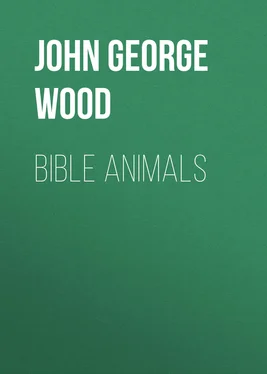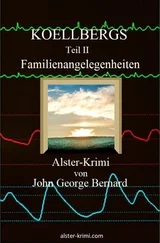"Should the present history of the country be written by an Arab scribe, the style of the description would be precisely that of the Old Testament. There is a fascination in the unchangeable features of the Nile regions. There are the vast pyramids that have defied time, the river upon which Moses was cradled in infancy, the same sandy desert through which he led his people, and the watering-places where their flocks were led to drink. The wild and wandering Arabs, who thousands of years ago dug out the wells in the wilderness, are represented by their descendants, unchanged, who now draw water from the deep wells of their forefathers, with the skins that have never altered their fashion.
"The Arabs, gathering with their goats and sheep around the wells to-day, recall the recollection of that distant time when 'Jacob went on his journey, and came into the land of the people of the east. And he looked, and behold a well in the field, and lo! there were three flocks of sheep lying by it,' &c. The picture of that scene would be an illustration of Arab daily life in the Nubian deserts, where the present is a mirror of the past."
Owing to the great number of Sheep which they have to tend, and the peculiar state of the country, the life of the shepherd in Palestine is even now very different from that of an English shepherd, and in the days of the early Scriptures the distinction was even more distinctly marked.
Sheep had to be tended much more carefully than we generally think. In the first place, a thoughtful shepherd had always one idea before his mind,—namely, the possibility of obtaining sufficient water for his flocks. Even pasturage is less important than water, and, however tempting a district might be, no shepherd would venture to take his charge there if he were not sure of obtaining water. In a climate such as ours, this ever-pressing anxiety respecting water can scarcely be appreciated, for in hot climates not only is water scarce, but it is needed far more than in a temperate and moist climate. Thirst does its work with terrible quickness, and there are instances recorded where men have sat down and died of thirst in sight of the river which they had not strength to reach.
In places therefore through which no stream runs, the wells are the great centres of pasturage, around which are to be seen vast flocks extending far in every direction. These wells are kept carefully closed by their owners, and are only opened for the use of those who are entitled to water their flocks at them.
Noontide is the general time for watering the Sheep, and towards that hour all the flocks may be seen converging towards their respective wells, the shepherd at the head of each flock, and the Sheep following him. See how forcible becomes the imagery of David, the shepherd poet, "The Lord is my Shepherd; I shall not want. He maketh me to lie down in green pastures (or, in pastures of tender grass): He leadeth me beside the still waters" Ps. xxiii. 1, 2). Here we have two of the principal duties of the good shepherd brought prominently before us,—namely, the guiding of the Sheep to green pastures and leading them to fresh water. Very many references are made in the Scriptures to the pasturage of sheep, both in a technical and a metaphorical sense; but as our space is limited, and these passages are very numerous, only one or two of each will be taken.
In the story of Joseph, we find that when his father and brothers were suffering from the famine, they seem to have cared as much for their Sheep and cattle as for themselves, inasmuch as among a pastoral people the flocks and herds constitute the only wealth. So, when Joseph at last discovered himself, and his family were admitted to the favour of Pharaoh, the first request which they made was for their flocks. "Pharaoh said unto his brethren, What is your occupation? And they said unto Pharaoh, Thy servants are shepherds, both we, and also our fathers.
"They said moreover unto Pharaoh, For to sojourn in the land are we come; for thy servants have no pasture for their flocks; for the famine is sore in the land of Canaan: now therefore, we pray thee, let thy servants dwell in the land of Goshen."
This one incident, so slightly remarked in the sacred history, gives a wonderfully clear notion of the sort of life led by Jacob and his sons. Forming, according to custom, a small tribe of their own, of which the father was the chief, they led a pastoral life, taking their continually increasing herds and flocks from place to place as they could find food for them. For example, at the memorable time when the story of Joseph begins, he was sent by his father to his brothers, who were feeding the flocks, and he wandered about for some time, not knowing where to find them. It may seem strange that he should be unable to discover such very conspicuous objects as large flocks of sheep and goats, but the fact is that they had been driven from one pasture-land to another, and had travelled in search of food all the way from Shechem to Dothan.
In 1 Chron. iv. 39, 40, we read of the still pastoral Israelites that "they went to the entrance of Gedor, even unto the east side of the valley, to seek pasture for their flocks. And they found fat pasture and good, and the land was wide, and quiet, and peaceable."
Конец ознакомительного фрагмента.
Текст предоставлен ООО «ЛитРес».
Прочитайте эту книгу целиком, купив полную легальную версию на ЛитРес.
Безопасно оплатить книгу можно банковской картой Visa, MasterCard, Maestro, со счета мобильного телефона, с платежного терминала, в салоне МТС или Связной, через PayPal, WebMoney, Яндекс.Деньги, QIWI Кошелек, бонусными картами или другим удобным Вам способом.












